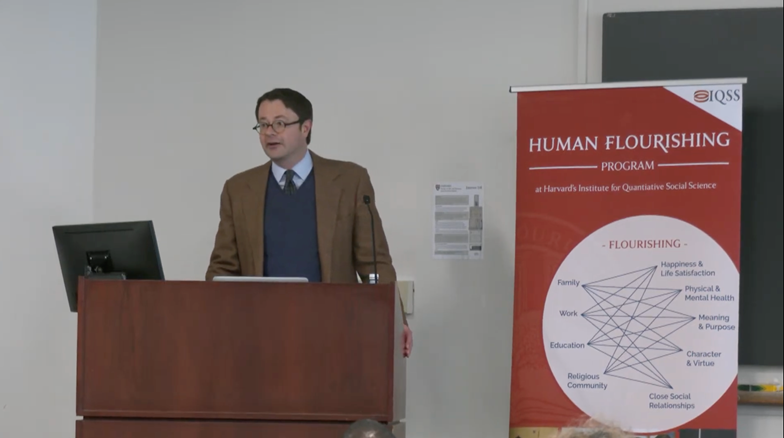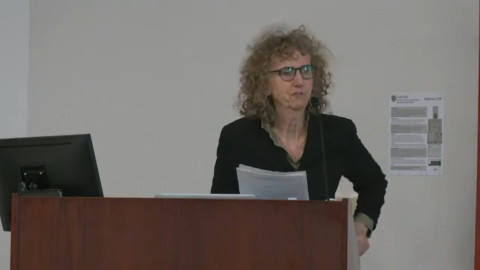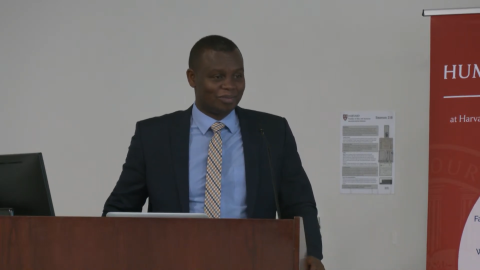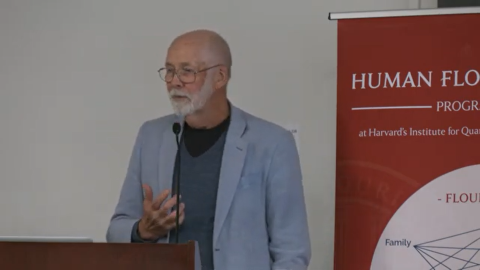A Journey of Forgiveness: Religions for Peace Joins a Community of Believers and Practitioners for the “Forgiveness: Interdisciplinary Perspectives” Conference
“Positive peace is beyond the absence of conflict – it is the whole of the spectrum of human dignity, which cannot happen when we have a repository of anger, of bitterness, in our bodies and in our minds. Every single faith tradition across the globe urges for forgiveness, so that we can be free from the toxins that pile up in our bodies and in our souls, and serve together for the common good,” Professor Azza Karam, Secretary General of Religions for Peace, emphasised during the Forgiveness Forum: Where Spirituality and Science Meet, co-organised by Religions for Peace and the Templeton World Charity Foundation in November 2022.
As the international community grapples with a multiplicity of crises, characterised by ongoing violent conflict, climate change, and humanitarian emergencies, the practice of forgiveness presents a critical opportunity in overcoming cycles of hatred and violence, and cultivating solidarity and understanding, even amongst communities divided by deep-rooted historical grievances. Under its Strategic Priority of Building Just, Peaceful & Inclusive Societies, Religions for Peace convenes religious and faith leaders, policymakers, and key stakeholders to engage in processes of dialogue and collaboration through which we can serve, together, for the common good. In 2022, we launched the Beyond War and Towards Reconciliation: Multi-Religious Peace Roundtables series through the inaugural convening of the Tokyo Peace Roundtable, which facilitated dialogue on reconciliation and rebuilding of societies among religious leaders, policymakers, and key stakeholders from otherwise warring countries. Recognising the importance of forgiveness as a vital step towards addressing the world’s most intractable crises, Religions for Peace is partnering with the Templeton World Charity Foundation to explore how the practice of forgiveness can bring spirituality and science together to complement each other in advancing the common good.
On 20 April, Religions for Peace furthered its commitment to join the larger community of believers and practitioners on the practice of forgiveness by participating in the Forgiveness: Interdisciplinary Perspectives conference, co-organised by the Human Flourishing Program at Harvard University’s Institute for Qualitative Social Science, the Templeton World Charity Foundation, and other partners. Leaders and experts from interdisciplinary backgrounds such as Dr. Tyler VanderWeele, Director of the Human Flourishing Program, and Dr. Andrew Serazin, President, Templeton World Charity Foundation welcomed participants to the pre-conference kickoff event.

In his welcome remarks, Dr. Tyler VanderWeele described forgiveness as “a pathway to healing,” stressing the importance of forgiveness to society, to healing, to flourishing, and to the fabric of the world. In this context, the Human Flourishing Program is guided by a two-fold aim: “to study and promote human flourishing, and to develop systematic approaches to the integration of knowledge across disciplines.” Stressing the need for interdisciplinary discussion and reflection on the science and practice of forgiveness, he highlighted that interdisciplinary approaches to the study and practice of forgiveness are timely and necessary due to “the complexities concerning the definition of forgiveness; the moral conditions under which it is appropriate; the psychology of forgiveness, and how to facilitate its effects on one’s life and relationships; and its role in society.”
Highlighting forgiveness as “a fundamental strategy for navigating an imperfect world that is full of adversities,” Dr. Andrew Serazin noted that there has been remarkable progress in the study of forgiveness, in that various disciplines are exploring its practical implications and developing different tools to facilitate its lasting effects. He further emphasised that forgiveness is “a miraculous thing that allows us to cooperate, repair wrongdoings, and fulfill our common goals.” In this context, the Templeton World Charity Foundation (TWCF) focuses on supporting the discovery, development, and launch of innovations that facilitate forgiveness and flourishing. Through the Discover Forgiveness campaign, for instance, TWCF makes academic research on forgiveness accessible and actionable for communities across the globe, including for “frontline workers of forgiveness – faith leaders, mental health workers, educators, and many others.”
Turning to leading practitioners and models of forgiveness, Dr. Serazin moderated the interactive panel discussion on How to go from the Science to Practice of Forgiveness, which featured perspectives from Ms. Marina Cantacuzino, Founder, The Forgiveness Project, and Mr. Freddy Mutanghua, Executive Director, Aegis Trust; Director, Kigali Genocide Memorial.

Ms. Marina Cantacuzino began by highlighting The Forgiveness Project’s approach to forgiveness, in that it does not drive people to forgive, but rather, creates safe spaces for inquiry and exploration, where forgiveness can be debated, grappled with, and perhaps eventually adopted. As a journalist, she wished to explore how forgiveness worked by going beyond the “narrative of revenge” promoted by governments. Through The F Word Exhibition, she collated stories from survivors and victims who sought peaceful solutions to conflict, as well as former perpetrators who transformed their aggression into a force for peace. Emphasising the power of storytelling in understanding individual beliefs and convictions, Ms. Cantacuzino highlighted various tools developed by The Forgiveness Project to enable individuals and groups to transform the impact of harm and violence and nurture peaceful coexistence, including the Forgiveness Tool Boxes, and the RESTORE Programme that supports prisoners in their process of change towards desistance from crime. Through these tools, as Ms. Cantacuzino highlighted, we can drown out the noise from increasing stories of hatred, division, and polarisation, and towards humanising stories of compassion, understanding, tolerance, and forgiveness.

As a living model of forgiveness, Mr. Freddy Mutanghua shared his personal experience in the 1994 Rwandan Genocide and the powerful impact of forgiveness in trauma healing and reconciliation. As tensions broke out, Mr. Mutanghua’s family was reduced from nine to two in brutal, unimaginable ways. His parents were killed with machetes and clubs, while his four little sisters were sexually abused and subsequently thrown into a septic tank to die. Ultimately, Mr. Mutanghua and his sister, Rosette, were the only two survivors from his family. Enduring such traumatic experiences, Mr. Mutanghua came to understand that “forgiveness is a long and complex process.” Together with Rosette, Mr. Mutanghua visited the former soldier who killed their family – not to seek vengeance, but to seek truth and understanding, and to start a journey of healing and forgiveness. Recognising the role of education in forgiveness, Mr. Mutanghua led the development of Aegis Trust’s peace education programme in Rwanda, which now serves as an integral part of Rwanda’s secondary education curriculum. He highlighted that efforts are underway to expand this model to other areas at risk, including the Central African Republic, South Sudan, and Kenya. Furthermore, he noted that plans are being developed to establish an institute to build up resilience and bridge divisions in Rwanda, in commemoration of the 30th anniversary of the Rwandan Genocide in 2024. In closing, Mr. Mutanghua stressed, “If peace is achievable after genocide, peace can be achieved everywhere.”

The event concluded with the screening of a short film by Richard Sergay on the REACH Forgiveness Workbook by Dr. Everett Worthington, Commonwealth Professor Emeritus. Dr. Worthington highlighted that the REACH Forgiveness intervention has been used in psychoeducational groups, couple and individual counseling and psychotherapy, and workbooks. The REACH model was recently the subject of a global randomised controlled trial conducted in six languages across the globe – the largest ever forgiveness study of its kind. The study found that those who followed the workbook showed significant reductions in unforgiveness, and symptoms associated with depression and anxiety. It serves as an evidence-based approach that “defines forgiveness, promotes a decision to forgive, teaches steps to reach emotional forgiveness, and promotes generalisation to other aspects of life by inviting repeated use of the REACH Forgiveness model.” As highlighted in the short film, the REACH Forgiveness model has had a powerful impact in aiding individual processes of healing and forgiveness in the context of conflict and humanitarian emergencies, including amongst those suffering in the ongoing conflict in Ukraine.
Religions for Peace is honoured to have participated in the Forgiveness: Interdisciplinary Perspectives conference, which brought together scholars and practitioners from various fields to explore the power and importance of forgiveness, as well as the different tools to create spaces that are conducive to healing and forgiveness, not just amongst individuals, but also in the context of humanitarian emergencies.